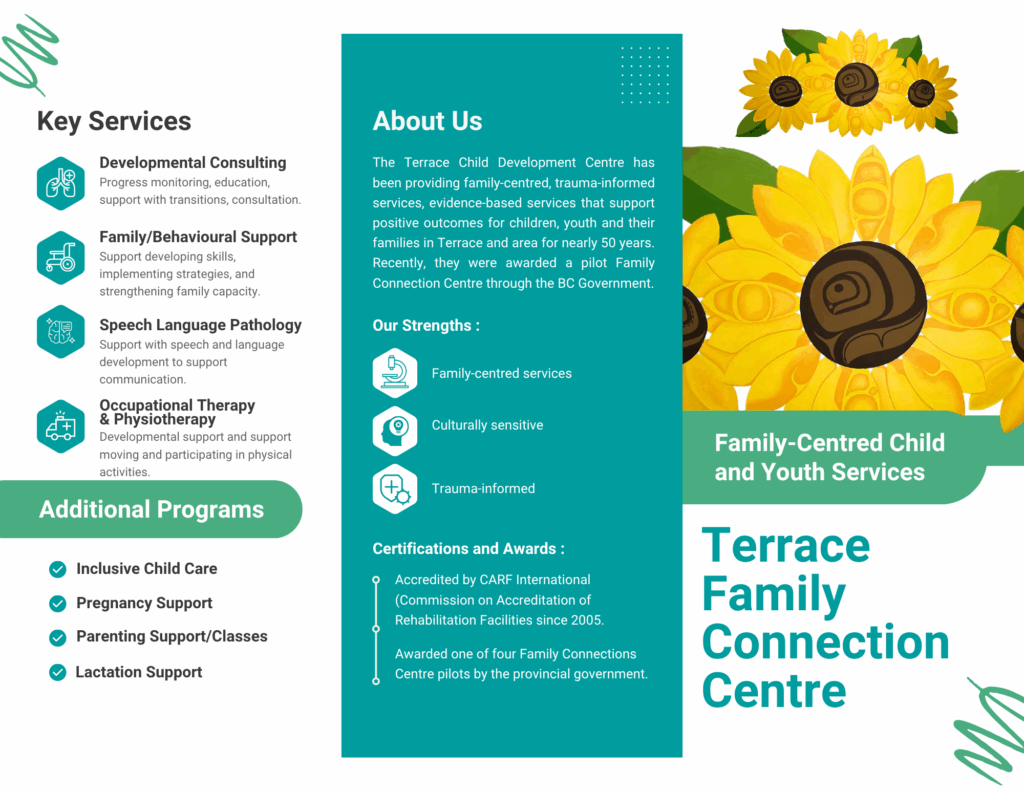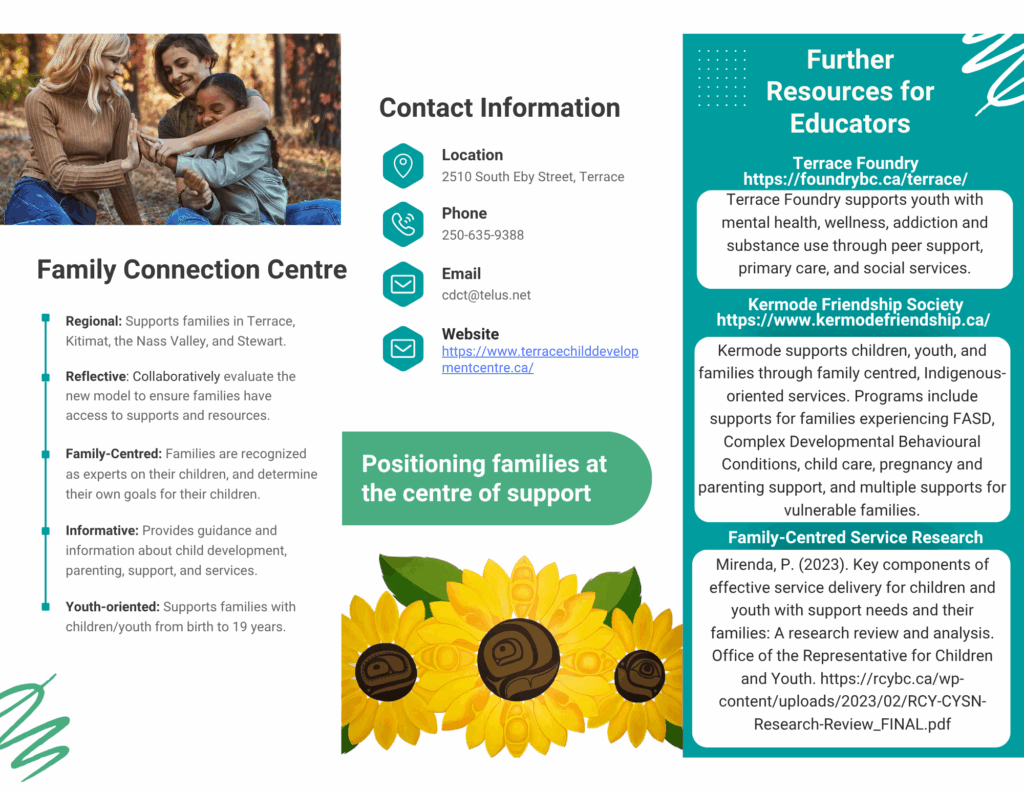In inclusive middle schools, we need to ensure that we are pursuing family-centred planning, where we consider what the family as a whole needs for the student to be successful. Often, at the middle school level, families are less involved than in elementary schools. We want to reposition this, ensuring that families are welcomed in and included in all planning processes for the student’s academic and social-emotional learning.
In family-centred planning, families are positioned at the centre of the support, and families are recognized as the experts on their own children. The Family Connections Centre in Terrace is a supportive centre that provides family-centred youth and child services. It is an excellent site of support for middle school students in Terrace.
Positioning families at the centre of all planning is something that I think that I can become much better at in my practice. I will strive to ensure that I communicate more and that I invite families more fully into the planning processes around their child. I will work to communicate more frequently with families of students on my caseload and in my classes, and I will aim to support them in more nontraditional ways whenever possible. This school year, I phoned a mom to tell her casually that her son had jumped four grade levels in reading, and she cried, which made me cry, too. It was such a beautiful opportunity to share positive news and to update her, and it was clearly so meaningful for her! I am going to try to work harder to share the successes more frequently, with all of the families I interact with. Last year for the first time, I sent home a survey for families about their child, asking them about their child as a reader, writer, student, and kid outside of school. I didn’t get that many back, because I teach grade nine, but the ones I did receive back helped me to better understand the student and to better shape my teaching. I did the survey because my son’s teacher in second grade sent one home and I thought, hey, I should do this, too. I feel like establishing that positive, curious communication early on helps the families to know that you are in their child’s corner and that you see them as a full human.


References
Mirenda, P. (2023). Key components of effective service delivery for children and youth with support needs and their families: A research review and analysis. Office of the Representative for Children and Youth. https://rcybc.ca/wp-content/uploads/2023/02/RCY-CYSN-Research-Review_FINAL.pdf
Terrace Child Development Centre. (2025). Terrace Family Connection Centre. https://www.terracechilddevelopmentcentre.ca/family-connection-centre-1
Trute, B, & Hiebert-Murphy, D., editors. (2013). Partnering with parents: Family-centred practice in children’s services. University of Toronto Press.
